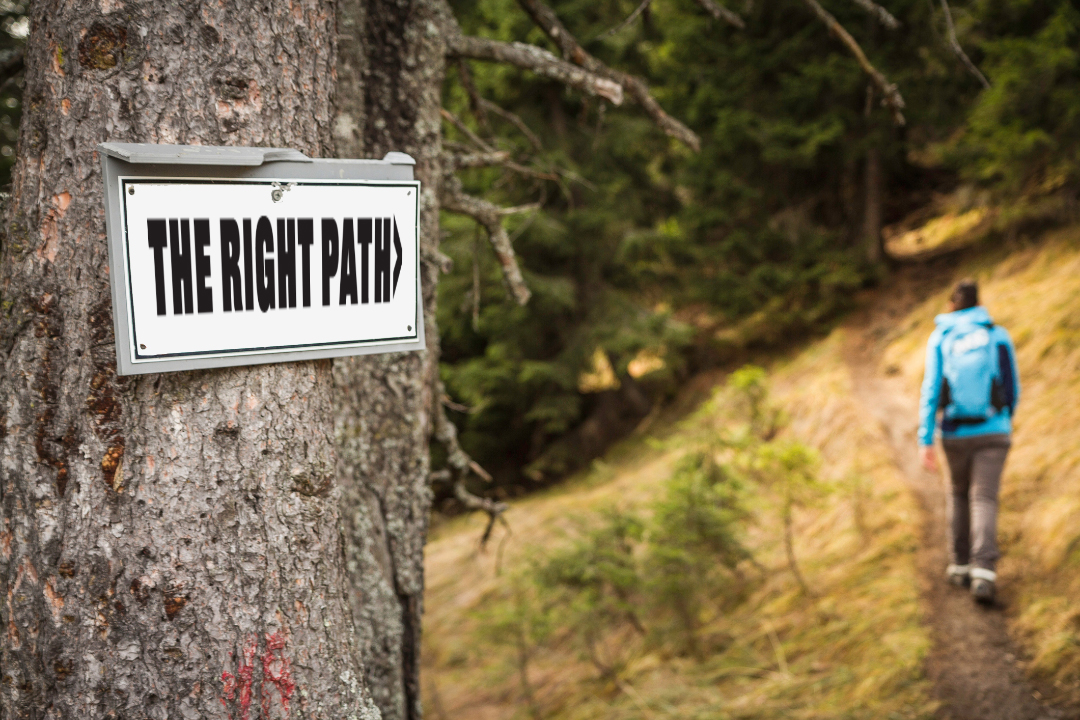Trust in the Lord with all your heart, and do not rely on your own insight.
In all your ways acknowledge God, and God will make straight your paths.”
Proverbs 3:5-6
Singer-songwriter David Wilcox tells a story in his live shows that he calls “bad directions.” Very often, Wilcox masterfully pushes everyday life events to their limits to reveal some deeper, metaphorical truth. His “bad directions” is a great example.
Wilcox talks about being on the way to a gig somewhere, in the days before GPS. He’s in some small town, way out in the country. He stops to ask a local for directions, but the local doesn’t give him any street signs. The local guy points to the road ahead and says, “Turn when you see the big blue poodle … you can’t miss it.”
Wilcox keeps driving, but as he does, he starts to worry. And he’s bugged by the deeper metaphor of bad directions.
He says: “I’m thinking of myself, I’ve been driving now … I’m driving and driving … I have only one landmark to go by. And what if I missed it? You know when they say you can’t miss it, that’s the kiss of death.”
“It’s just too much like life,” Wilcox continues. “Like as a kid when you’re asking people, ‘how do you know what is true love?’ They always say, ‘Oh you know.’ Well that’s like saying ‘you can’t miss it.’”
Wilcox finishes, “And now I just imagine I’m 96 years old, still driving, and saying ‘No … I’m holding out for the big blue poodle … He said it was on the road here. I can’t miss it.’”
One of the most challenging things for any person is to trust that we are on the “right path.” During March, Christians celebrate the holy season of Lent. Lent is the 40 days before Easter and is set aside as a time for us to ask ourselves:
“Are we on the right path?”
“Is there where I want to be?”
“What should I change in my life right now?”
The biblical word “repentance” is often negatively connected with Lent. We tend to associate “repenting” with “feeling bad.”
But the most literal definition of the word is “turning a new way.”
It means to be on one path, going one way, and to decide to turn and go another way instead. It’s not at all clear that it has to always be a weepy, sad moment. (Although it certainly can be.)
In Proverbs, the writer reminds us that if we trust in God, then “God will make straight your paths.”
But even once we trust in God, we still can have our doubts and fears. We can worry that we’ve missed some sign or marker somewhere.
Maybe we missed the big blue poodle!
However, if we keep checking in with God, through regular prayer, meditation and a deep level of trust and faith, God assures us that He will always open a good path for us. It may not always be the path we wanted or expected out of life. We may often be surprised. But God walks with us.
This March, check out the literal nature paths throughout our neighborhood. And as you walk them, meditate on how somebody took the time to make a good path that safely leads through the literal beauty of God’s natural world.
Our spiritual path works the same. We always have the option to “turn in a new way,” toward God. And if we are trusting in God’s leading, we will find beautiful pathways that lead to goodness and life.





